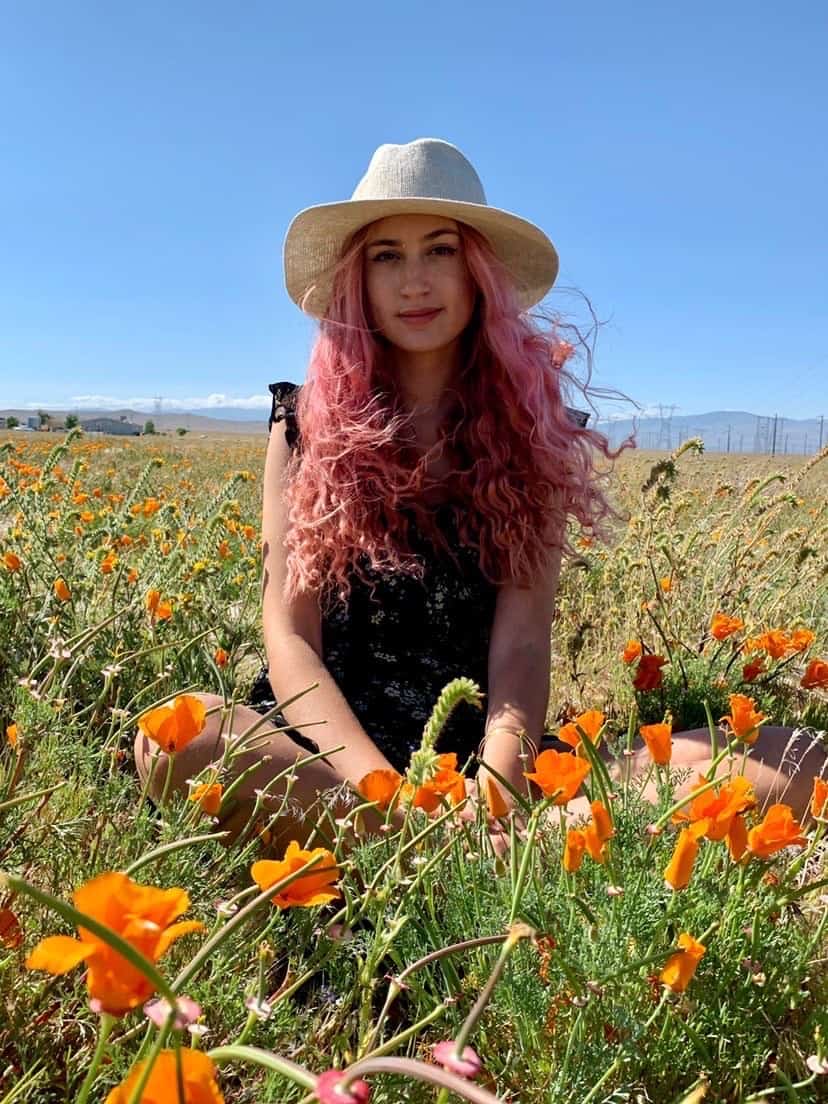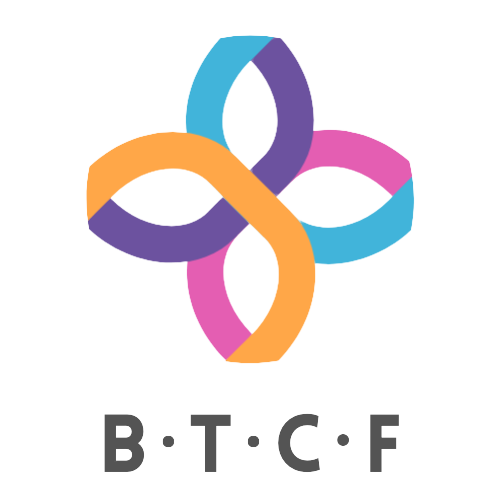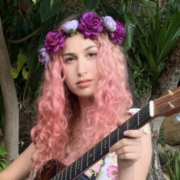AN INTERVIEW WITH TRINITY ROSE
“It is only with the heart that one can see rightly; what is essential is invisible to the eye.”
Antoine de Saint-Exupéry

BTCF: Your voice is very soulful and rich. There is a pop-vibe to some of your music and yet an R&B sound as well as an indy vibe. How would you describe yourself as an artist?
TRINITY ROSE: It’s funny that you notice how much my genres kind of blend. I love music a lot and there’s so many amazing parts of music that I don’t want to be restricted to. My songs Morning Text and Coughing Up Flowers are so different because I found inspiration in different kinds of styles. I would describe myself in all the ways you did and I hope I can be described in more ways in the future!
BTCF: Do you write your own music? Listening to Coughing Up Flowers is beyond! “Who is the person behind this mirror” in your lyric?
TRINITY ROSE: I do write my own music, but I really love co-writing and having other people’s input on my own songs. I wrote Coughing Up Flowers with Casey Malanuk and I can’t really remember who wrote that line. The way I see that person is myself as I’m looking in the mirror. It’s more that I don’t recognize myself with such strong, irrational feelings for another person and the moment of clarity I’m experiencing at that moment is entirely new.
BTCF: What was it like to be chosen as one of eight teen vocal performers in the country to attend a week-long intensive program, hosted by The GRAMMY Foundation and USC Thornton School of Music?
TRINITY ROSE: It was amazing being chosen for Grammy Camp two times in my high school career. I learned so much from people like Chris Sampson and other faculty members that taught all of us. I met tons of people I still work with today and I couldn’t have made those bonds without that camp.
BTCF: You recently released your single “Morning Text”. Can you share what it’s about and the inspiration behind it?
TRINITY ROSE: I wrote Morning Text with my co-writer Steve Damar after a gig that I did nearby. The inspiration came from this one time I was getting attention from a guy I wasn’t really into and I didn’t know how to tell him I didn’t want something serious. The term ‘morning text’ is such a flirty new thing for teenagers like me and I thought drawing inspiration from that concept would be perfect!
BTCF: When collaborating with other artists, what connects you the most and why?
TRINITY ROSE: When I collaborate with another person, I usually have to be connected through understanding of each other and almost being on the same wavelength. I get along with some people, but that doesn’t mean it makes for a good collaboration. When I’m writing with them, if they’re completely open and throw out ideas unashamedly I absolutely adore them.
BTCF: Are your songs based on personal story or real life around you or both?
TRINITY ROSE: My songs are based on my own personal experiences usually, but concepts and things I observe are almost always at the core of any song I write. I wrote a ton of personal songs for myself but most of the songs I’ve released aren’t based off of anything besides a concept.
BTCF: At 13 years of age, you were on Season 12 of “The Voice”. Being so young, were there challenges that seemed to present themselves more than others? If so, can you share what they were?
TRINITY ROSE: I think being 13 years old on a reality TV show was a lot for me. While it introduced me to a lot of stress, it was actually really beneficial to see a professional show and singers in front of me. School was difficult since I had to leave for a month to go across the country, but I also had plenty of kids my age to hang out with.
BTCF: We were thrilled to have you perform in one of our music live streams to share personal story and connect with others through music. What drew you to want to be a part of our mission and the community we serve?
TRINITY ROSE: I greatly admire the work of BTFC and seeing the positive message to younger people that are being so affected by the world around them is so incredibly important. As someone who was a very young girl not too long ago, this kind of community would’ve been perfect for me. Communicating through music is also something that I strongly believe in and what a lot of people can relate to no matter what age you are.
BTCF: What are three things that you do or enjoy helping ground yourself and bring you peace of mind?
TRINITY ROSE: One thing I do is watch something that’ll make me laugh or smile, like my favorite shows or youtubers. Another is playing my guitar and writing bare lyrics that don’t have to become a published or performed song. Although basic, if I’m panicking, I always make sure to do breathing exercises and close my eyes.
BTCF: What type of music training have you had and if so, at what age did you start? What instruments do you play?
TRINITY ROSE: My vocal training started when I was about seven years old and I picked up guitar a couple years later. I played ukulele and a lot of piano when I was younger on and off but guitar was what I really stuck with.
BTCF: What do you feel has been your greatest accomplishment so far and why?
TRINITY ROSE: I think my greatest accomplishment so far in my life was my song Love is the Only River. That song and music video was one of the most important projects I’ve ever worked on and creating it with Ian Sloane and getting all the people together was very rewarding. It got me a full scholarship to Berklee 5-Week Summer season by winning the international songwriting competition and many kids in elementary schools have performed it.
BTCF: BTCF uses all forms of art to inspire healing, support, recovery, and community for those affected by eating disorders and negative body image relationships. We believe in the healing elements that various art genres provide. How is music healing to you?
TRINITY ROSE: Music has healed me since I was very young. I think it’s our universal language and you can spread love and good messages through it incredibly easily. Young people are so affected by media in negative ways and to have a chance to give a positive message through my music is my way of healing myself and hopefully other people.
BTCF: Is there a process you go through when writing and creating your music? If so, do you have a couple of tips to young artists?
TRINITY ROSE: My process tends to change but I can give a couple of tips that might help younger artists. The first thing I would do is learn an instrument or find tracks online that are free that you can use and try writing to them. I would also read as much as you can and look into poetry and things that really interest you. The thing about creating your own music is that it can be whatever you want it to be.
BTCF: Do you have any advice to youth your age that are trying to navigate through a social media world while still discovering who they are?
TRINITY ROSE: As a younger person myself I think the media is an important thing but also a dangerous thing. I’ve seen a lot of my friends and other people online get so affected by the harmful nature of people’s words when they don’t think about what they’re saying or what they’re presenting. I would try to find activities that really interest you outside of the internet and find friends that understand you and will always be there if you’re feeling defeated by how the world treats you.
BTCF: Is there anything else you would like to share?
TRINITY ROSE: If any of the people who follow me or listen to my music ever need a safe space, I hope that I can provide it. I always strive to make people feel better and be the best example of myself that I can give to younger people. I’m not perfect myself and I want people to know that and see that they don’t have to be perfect either.
To Learn More about Trinity Rose, please click below and follow her on her:
Instagram @trinityroseofficial



